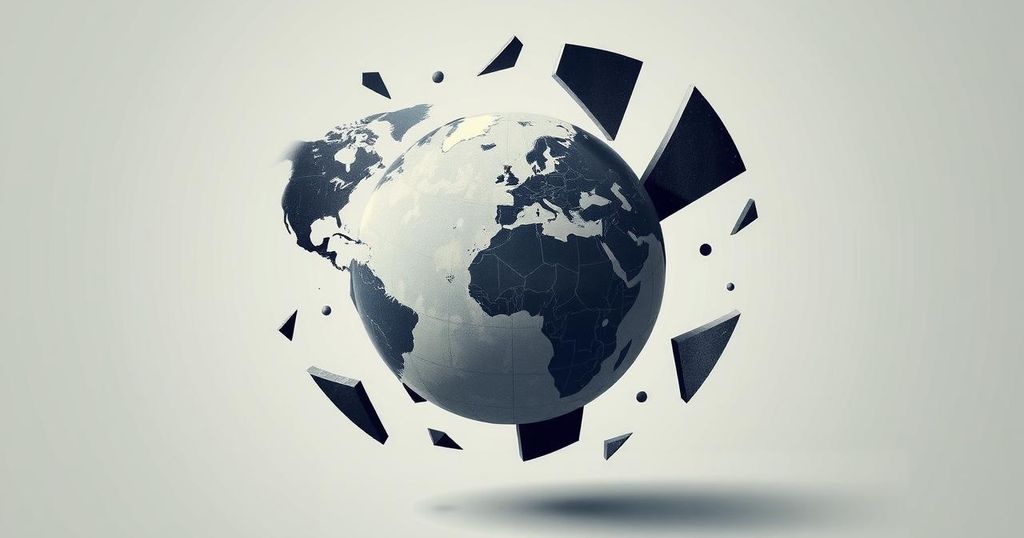Venezuela has labeled U.S. Secretary of State Marco Rubio as an “enemy” after he affirmed U.S. support for Guyana’s sovereignty over the disputed Essequibo region. Venezuelan officials reject international arbitration, fueling tensions and complicating diplomatic relations. The ongoing territorial issue, rooted in historical agreements, has been exacerbated by recent Venezuelan military actions and legislative claims on the region, amidst concerns over compliance with international law.
On January 27, Secretary of State Marco Rubio reiterated the United States’ commitment to Guyana’s sovereignty over the Essequibo region, a territory disputed by Venezuela. In response, Venezuelan Foreign Minister Yvan Gil characterized Rubio as “an enemy of our country,” accusing him of having an “unhealthy obsession with harming Venezuela.”
Essequibo, a resource-laden strip that comprises over two-thirds of Guyana’s landmass, has been administratively under Guyana’s control for more than a century. Gil claimed that Rubio aimed to advance the Guyanese government’s “fantasies,” thereby undermining Venezuela’s historical rights to the territory. He stressed that the obligations of Guyanese officials are towards “history, international law, and regional peace,” rather than third-party interests.
Gil asserted that the legitimate means of addressing the territorial dispute over Essequibo is through adherence to the 1966 Geneva Agreement. However, he has misrepresented the historical context, as an international tribunal defined the border between Venezuela and Guyana in 1899, granting British Guiana—now Guyana—sovereignty over Essequibo. Following Guyana’s independence from British rule in 1966, the United Nations mandated that remaining territorial disputes with Venezuela be settled through international arbitration.
After unsuccessful negotiations in 2018, U.N. Secretary-General Antonio Guterres designated the International Court of Justice (ICJ) to consider the dispute. Since then, Guyana has complied with U.N. protocols while Venezuela has taken actions that contravene international law. In December 2020, the ICJ agreed to take up Guyana’s case regarding the validity of the 1899 ruling, to which Venezuelan President Nicolas Maduro has consistently contested the courts’ jurisdiction.
Venezuela has consistently rejected the ICJ’s authority and has even threatened extralegal actions to resolve the conflict. A December 2023 referendum regarding the incorporation of Essequibo into Venezuela was denounced as illegal by the Organization of American States. Preceding the referendum, the ICJ urged Venezuela to refrain from actions that would assert control over territories awarded to British Guiana in 1899.
On December 5, 2023, President Maduro declared the establishment of a new Venezuelan state named “Guayana Esequiba,” releasing a new map that included Essequibo as Venezuelan territory. Maduro plans to commence the exploration and exploitation of Essequibo’s natural resources, issuing directives to create state subsidiaries for these endeavors. Despite previous agreements on non-aggression, Venezuela has increased its military presence along the disputed border.
In March 2024, the Venezuelan National Assembly approved a law recognizing Essequibo as part of Venezuela, which awaits the Supreme Court’s review for constitutional validity. Analysts contend that Maduro is leveraging the Essequibo issue to bolster public support ahead of the July 2024 elections, amidst allegations of election fraud. Recently, Venezuela completed a bridge linking its mainland to Ankoko Island, which Guyana argues is illegally occupied by Venezuelan forces.
The territorial dispute between Venezuela and Guyana revolves around the Essequibo region, a land rich in resources. Historical treaties and international rulings established the boundaries between the two nations, particularly the 1899 arbitration agreement which granted sovereignty over the region to British Guiana, now known as Guyana. Despite the historical and legal foundations favoring Guyana, Venezuela continues to claim the territory, complicating relations between the two nations and affecting regional stability. The United Nations has recognized the need for peaceful resolution of the dispute, mandating that unresolved issues be addressed through international bodies such as the International Court of Justice. Venezuela’s actions, including military maneuvers and legislation claiming Essequibo, have raised tensions and prompted concerns about compliance with international law. The matter also intersects with domestic politics, as the current Venezuelan administration seeks to consolidate power amid allegations of electoral misconduct.
In summary, the conflict over Essequibo remains unresolved, with Venezuela’s claims intensifying amid international legal adjudications and rising military presence. The United States, represented by Secretary of State Marco Rubio, upholds Guyana’s sovereignty, which has drawn sharp rebuke from Venezuelan officials. Continued adherence to established international law and active engagement in dialogue will be crucial in averting escalation and ensuring regional peace. The complex interplay of domestic politics and international obligations calls for cautious navigation to resolve the longstanding dispute.
Original Source: www.voanews.com




